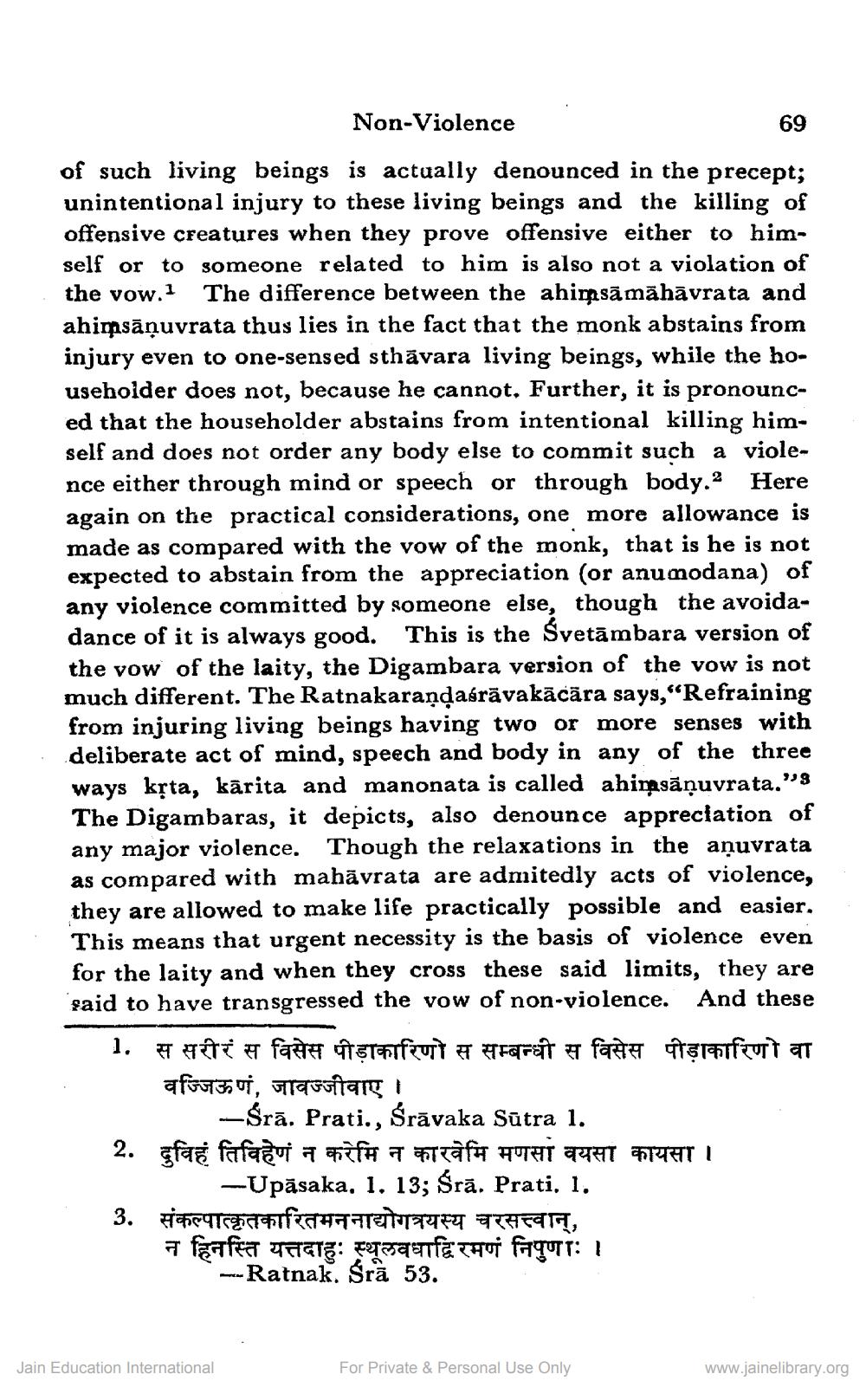________________
Non-Violence
69 of such living beings is actually denounced in the precept; unintentional injury to these living beings and the killing of offensive creatures when they prove offensive either to himself or to someone related to him is also not a violation of the vow. The difference between the ahimsāmāhāvrata and ahimsāņuvrata thus lies in the fact that the monk abstains from injury even to one-sensed sthāvara living beings, while the househoider does not, because he cannot. Further, it is pronounced that the householder abstains from intentional killing himself and does not order any body else to commit such a violence either through mind or speech or through body.2 Here again on the practical considerations, one more allowance is made as compared with the vow of the monk, that is he is not expected to abstain from the appreciation (or anunodana) of any violence committed by someone else, though the avoidadance of it is always good. This is the Svetāmbara version of the vow of the laity, the Digambara version of the vow is not much different. The Ratnakarandasrävakācāra says,"Refraining from injuring living beings having two or more senses with deliberate act of mind, speech and body in any of the three ways kệta, kārita and manonata is called ahimasāņuvrata."9 The Digambaras, it depicts, also denounce appreciation of any major violence. Though the relaxations in the aņuvrata as compared with mahāvrata are admitedly acts of violence, they are allowed to make life practically possible and easier. This means that urgent necessity is the basis of violence even for the laity and when they cross these said limits, they are said to have transgressed the vow of non-violence. And these 1. स सरीरं स विसेस पीड़ाकारिणो स सम्बन्धी स विसेस पीड़ाकारिणो वा वज्जिऊणं, जावज्जीवाए।
-Śrā. Prati., Śrāvaka Sūtra 1. 2. दुविहं तिविहेणं न करेमि न कारवेमि मणसा वयसा कायसा ।
--Upāsaka, 1. 13; Śrā. Prati, 1. 3. संकल्पात्कृतकारितमननाद्योगत्रयस्य चरसत्त्वान्, न हिनस्ति यत्तदाहुः स्थूलवधाद्विरमणं निपुणाः ।
--Ratnak. Srā 53.
Jain Education International
For Private & Personal Use Only
www.jainelibrary.org




